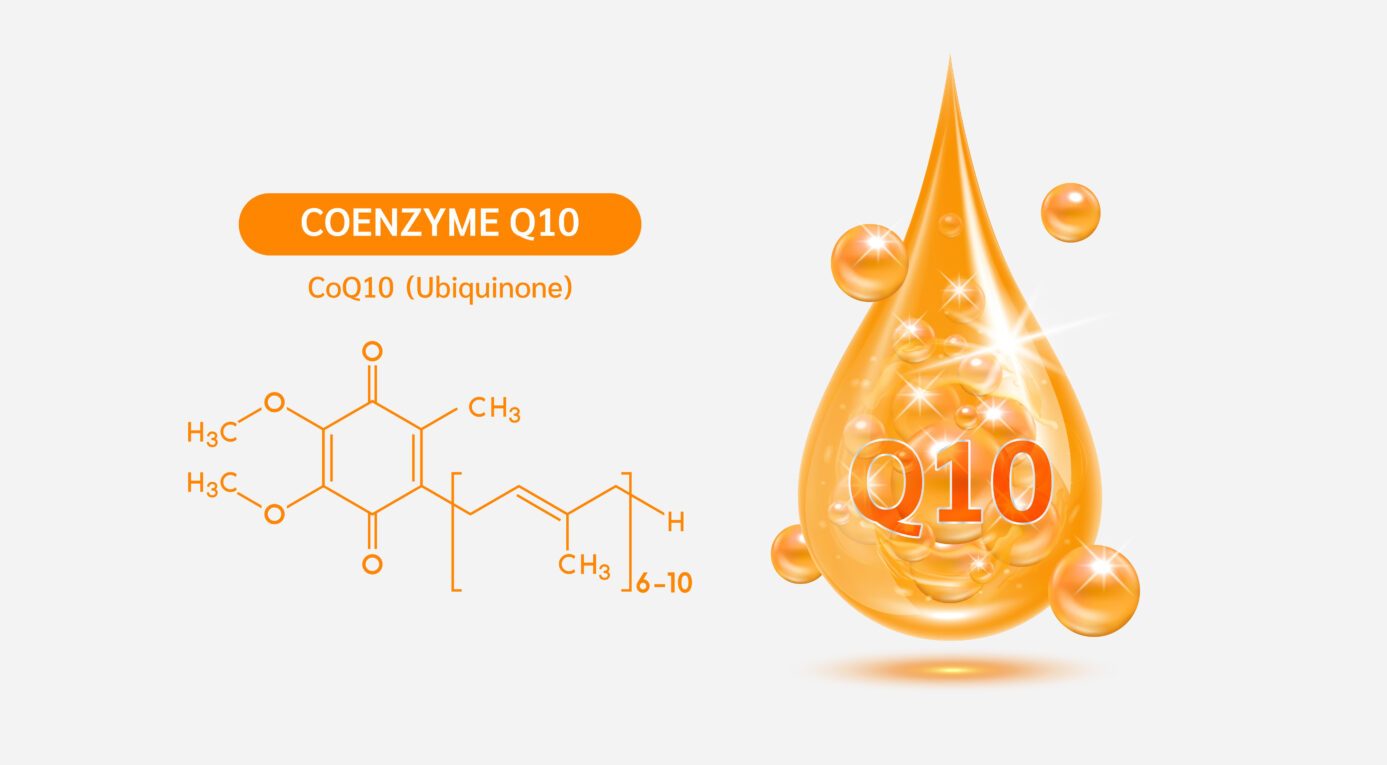CoQ10, or coenzyme Q10, is a natural enzyme produced by the body. It is part of the electron transport chain, used for aerobic cellular respiration. A majority of the body’s energy comes from this cellular respiration – about 95%. The organs that require the most energy, such as the heart, kidney and liver, therefore have the highest levels of this coenzyme.
CoQ10 is also known as; ubiquinone, ubidecarenone, coenzyme Q.
Health Benefits of CoQ10
CoQ10 is a popular supplement due to the various health conditions it can assist with.
What makes CoQ10 unique is that it can exist in an oxidized form for the functions of the electron transport chain and completely reduced in form for an antioxidant. (Oxidation is gain of oxygen, reduction is loss of oxygen from the CoQ10 molecule).
Various health benefits can be seen from the use of a dietary supplement of CoQ10 in a daily dose. Everybody’s response is different, however it has been seen to provide results in the following:
- High blood pressure
- Macular degeneration
- Alzheimer’s disease
- Angina
- Asthma
- Chronic fatigue
- Cocaine dependence
- Friedreich’s ataxia
- Heart conditions
- Increasing sperm count
- Kidney failure
- Migraines
- Muscular dystrophy
CoQ10 Deficiency
There are many reasons that a person can be deficient in this enzyme, due to metabolic or mitochondrial disorders or because of poor dietary intake. Therefore a health supplement of CoQ10 can provide a number of benefits to the body.
How To Take CoQ10
The coenzyme CoQ10 is commonly in the form of a liquid and can be taken by mouth. It can also be taken as a capsule or tablet. The doses will vary by person, which is why it’s beneficial to discuss how much should be taken by a medical professional.
While the body produces CoQ10 naturally, many people aren’t able to produce enough. Further, many prescription drugs on the market have a tendency to lower natural levels. By taking a supplement, you can counteract this shortfall.
CoQ10 Dosage
Approximately 50-1200 milligrams of CoQ10 can be taken daily. This can be divided up over the course of the day.
All of the dosing is for adults, not children.
Shopping
| Visit the new SHOPPING page for a wide selection of great products! |
Always take care when taking herbs and Read Our Disclaimer.
CoQ10 Notes / Side Effects
It has been reported that CoQ10 can affect blood sugar levels. Anyone with diabetes or hypoglycemia needs to understand that the supplements can lower levels and therefore needs to be monitored to ensure medications are adjusted as required.
Blood pressure has also decreased as a result of taking CoQ10. Anyone who is on blood pressure medication or has low blood pressure tendencies need to keep an eye on the pressure and report it to a doctor to ensure medication is adjusted as necessary.
Everyone reacts to the CoQ10 differently. Since it is found naturally in the body, the average person does not have any adverse reactions to the supplement. However, children as well as pregnant and breastfeeding women are advised to consult a physician before starting on a regime of supplements.


Leave a Reply